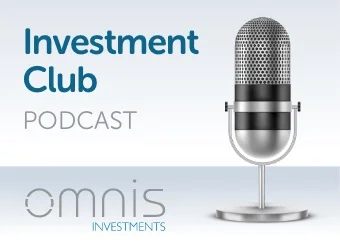UK mortgage rates nudge up in October 2025
Monday 24 November, 2025
What it means for remortgaging and first-time buyers
The UK mortgage market has seen a small rise in fixed rates in October 2025 after a period of gently falling rates. This article explains why lenders have pushed rates up slightly, how today’s typical deals compare with those of two years ago, and what people coming to the end of a fixed term, and first-time buyers, should consider.
This article is general information and not personal financial advice. For tailored guidance you please speak with a regulated mortgage adviser, from the team at Thomas Oliver.
How much have mortgage rates moved?
Recent market data shows average two-year fixed mortgage rates have increased marginally in October 2025. Industry reporting based on Moneyfacts data puts the typical two-year fixed around 4.9–5.0% (a small month-on-month rise), with five-year fixed rates sitting around 5.0%. These are small rises after several months of falling or steady rates.
To put this in context: two years ago (October 2023) the average two-year fixed was substantially higher, about 6.47%, meaning that although rates have edged up this month they remain well below the levels seen during the high-rate period in 2023.
Why have rates gone up slightly?
A few key factors explain the recent uptick:
- Swap-rate volatility and lender pricing: Lenders price mortgages using wholesale swap rates. Short-term movements in swap markets, often driven by investor views on inflation and central bank policy, can push lenders to tweak product pricing. After months of falls, lenders have responded to small rises in swap rates by nudging some fixed deals up.
- Inflation and economic uncertainty: Ongoing inflationary pressures and mixed economic data make lenders and investors cautious about the outlook, which feeds into swap rates and, in turn, mortgage pricing. International commentary (for example from the IMF) and UK economic news have highlighted continued inflation risks.
- Bank of England policy backdrop: The Bank of England’s Bank Rate is an important influence on the market. As of November 2025, the Bank Rate is 4%, and while the Bank has been cautious about cutting rates, any changes, or market expectations of them, will affect mortgage pricing. Lenders also weigh their funding costs and balance-sheet considerations when setting offers.
What this means if your fixed rate has just ended
If a fixed-rate deal has reached the end of its term you may be automatically moved onto your lender’s standard variable rate (SVR), which is typically higher and more changeable than a fixed deal. Given current market levels:
- You’re generally better off arranging a new fixed-rate deal rather than staying on an SVR, unless you have a specific short-term reason not to. Fixed deals give certainty of payments for the term chosen.
- Compare rates now with two years ago: someone who fixed in October 2023 at an average two-year rate of around 6.47% would now find typical two-year remortgage deals nearer 5.0%, a meaningful saving in monthly payments compared with 2023-vintage deals. That difference can be financially significant on typical mortgage balances.
- Consider product fees and early-repayment charges: when switching, look at the overall cost (rate + fees). A slightly lower headline rate with a high fee might not be better value than a marginally higher-rate, no-fee product.
Because personal circumstances, outstanding balance, term remaining and exit charges differ, it’s sensible to get a personalised understanding from a regulated mortgage adviser rather than rely on headline figures.
What the change means for first-time buyers
For first-time buyers the small rise in headline fixed rates is just one piece of the affordability puzzle:
- Availability of deals and deposit size still matter. Lenders price by loan-to-value (LTV); lower LTVs (bigger deposits) generally unlock the best rates. Even with a small rise in average rates, shopping for the right LTV band and product can make a real difference.
- Affordability checks remain central. Lenders will carry out affordability assessments that consider household income, outgoings and future interest rate stresses, so having clear budgets and a realistic deposit plan helps.
- Don’t delay basic preparation: get a copy of your credit report, confirm your budget, and start speaking to mortgage advisers or brokers early so you understand the deposit, stamp duty and other upfront costs. These steps help you move quickly if you find a suitable property.
Why speak to a regulated mortgage adviser?
A regulated mortgage broker or adviser can help in several practical ways:
- Search deals from across the market: a broker can access a wide range of lender products, and sometimes deals not available on the high street, then filter the options that match your credit profile and LTV.
- Personalised affordability modelling: mortgage advisers provide tailored payment illustrations showing the realistic monthly cost under different rates and terms, including product fees and how overpayments could help.
- Timing and exit planning: professional mortgage advisers can check your current deal for early-repayment charges, suggest the best time to remortgage and help you understand switching costs.
- Regulatory protection: regulated firms must follow FCA rules on fair, clear and non-misleading communications and carry out responsible affordability checks, which gives you protections you wouldn’t have if you acted without regulated advice.
The Thomas Oliver team can look at your full situation, existing mortgage balance, remaining term, fees and any plans to move and then give a recommendation that’s specific to you.
Practical next steps
- Check your current position: find your mortgage statements, note the balance, remaining term and any early-repayment charges.
- Get up-to-date rate illustrations: ask a regulated adviser for personalised quotes and total cost comparisons (rate + fees).
- Compare fixed-term lengths: shorter fixes (two years) can be cheaper now but may roll you into market rates sooner; five-year fixes give longer certainty.
- Think about overpayments and flexibility: if you can overpay some months, that may reduce interest paid overall but check product rules.
- Use regulated advice: speak to a mortgage adviser for a tailored recommendation and regulated protection.
Nathan Hall, Mortgage Broker & Protection Adviser in Southend, Essex said:
“Even small movements in mortgage rates can make a noticeable difference to monthly payments, especially when a fixed term comes to an end. At Thomas Oliver, we take the time to look at your full circumstances and search the deals we can access from across the market for the most suitable deal for you. Whether you’re remortgaging or buying your first home, professional advice can help you make informed decisions and feel confident about your next steps.”
In Summary
Mortgage rates have edged up slightly in October 2025 after a period of falls, with typical two-year fixes around the high-4% to being in the region of the 5% range, noticeably lower than the roughly 6.47% average seen in October 2023. The reasons include swap market moves, lender pricing caution and the wider inflation and economic backdrop, with the Bank Rate at 4.00%.
For anyone remortgaging or buying for the first time, individual circumstances matter, so seek a personalised, regulated mortgage recommendation before making decisions. The team at Thomas Oliver can help you compare options and explain the costs and benefits for your situation.
Sources: mpamag.com, moneyfactscompare.co.uk, ft.com, bankofengland.co.uk, rightmove.co.uk, which.co.uk, handbook.fca.org.uk
YOUR HOME MAY BE REPOSSESSED IF YOU DO NOT KEEP UP REPAYMENTS ON YOUR MORTGAGE.
Thomas Oliver UK LLP is an appointed representative of The Openwork Partnership, a trading style of Openwork Limited which is authorised and regulated by the Financial Conduct Authority.
Approved by The Openwork Partnership on 20/11/2025.






